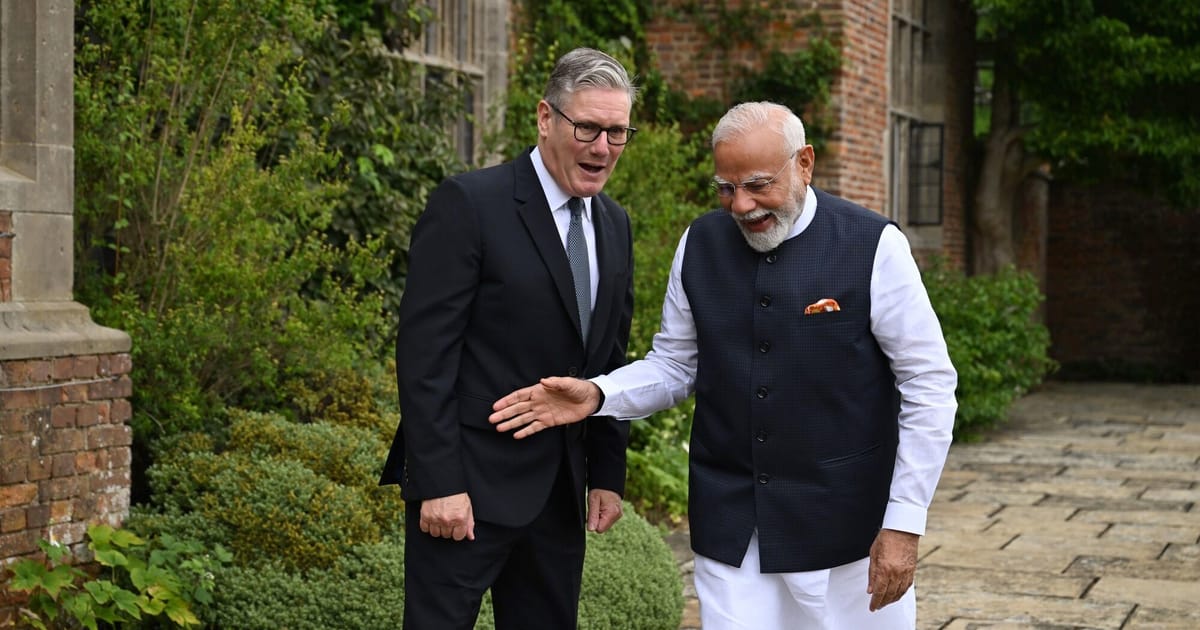

The United Kingdom and India have embarked on a historic journey of economic collaboration by finalizing a landmark free trade agreement during Indian Prime Minister Narendra Modi’s official visit to London. This significant accord, regarded as a mutual economic triumph, promises to usher in a new era of bilateral cooperation between the two nations.
Set against the backdrop of a rapidly evolving global trade landscape, the agreement is being hailed as the UK’s most economically substantial trade pact since its departure from the European Union. For India, it represents a groundbreaking venture, marking its first major free trade agreement outside Asia. This partnership fosters a strong economic alliance, enhancing opportunities and growth for both countries amid the complexities of international trade.
The trade deal is poised to significantly boost several important sectors in the UK, notably the automotive and whisky industries. British car manufacturers see this as an opportunity to expand their market presence in India, while the whisky industry is set to benefit from increased export opportunities. The infusion of new markets and consumer bases is expected to strengthen these sectors, contributing to economic growth and job creation within the UK.
In a reciprocal gesture, India gains valuable visa concessions, facilitating easier movement for professionals between the two nations. This element of the agreement is particularly important, as it supports the thriving sectors of technology and services, allowing skilled professionals to compete and collaborate more effectively on a global scale.
While the trade deal marks a substantial forward step in bilateral relations, some sensitive issues remain unresolved. Nonetheless, both nations express optimism and commitment to addressing these areas through ongoing dialogue and cooperation. This approach reflects a mindful recognition of the complexities inherent in such expansive agreements, emphasizing patience and collaboration as cornerstones of successful international partnerships.
Meanwhile, the global trade environment is experiencing its own dynamics, highlighted by recent discussions between the European Union and China. The EU has emphasized the need for rebalanced trade relations, with European Commission President Ursula von der Leyen urging China to engage in more equitable trade practices. This call for balance underscores the broader tensions in global trade, as countries navigate the intricacies of international commerce to foster economic stability and growth.
The UK-India trade agreement serves as an exemplar of how countries can find common ground and create pathways for mutual benefit amid the prevailing global challenges. By acknowledging shared interests and fostering open communication, both nations lay the groundwork for a prosperous partnership that extends beyond economic realms into broader cultural and technological exchanges.
As both the UK and India move forward with implementation of the trade agreement, the emphasis remains on nurturing the long-term economic partnership envisioned by this landmark deal. Through cooperation and understanding, these two nations demonstrate the potential of collaborative efforts to shape a positive future in an increasingly interconnected world.
Source: {link}
